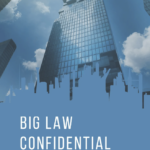$200M In Two Months Says Investors No Longer Snubbing Legal Tech
Artificial intelligence is worth the investment.
 Time was when legal tech startups couldn’t take a meeting with a major investment firm. Big New York and Silicon Valley investors turned up their noses, seeing insufficient upside in legal technology investments.
Time was when legal tech startups couldn’t take a meeting with a major investment firm. Big New York and Silicon Valley investors turned up their noses, seeing insufficient upside in legal technology investments.
Well, times have changed. Need proof? Just look at the last two months — nearly $200 million in new investment in legal technology in May and June.
Granted, half that went to one company, eDiscovery software company Exterro, which announced on May 23 that it had received a strategic investment from private-equity firm Leeds Equity Partners. It didn’t say how much, but The Oregonian reported that the investment was more than $100 million.
But then the month of June brought another $85.5 million in investments in four legal technology companies. Here’s a recap of where the money came from and where it went.
Exterro: $100 Million
Founded in 2004, the Oregon-based Exterro had never before taken outside investment. It said the Leeds investment will enable it to accelerate development of its technology and continue to build up its workforce and resources.
In particular, the company plans to integrate more artificial intelligence into its software, such as Exterro Smart Labeling, a feature it launched just the day before announcing the Leeds investment, which helps guide reviewers in tagging documents.
Sponsored

Legal Knowledge Management To Drive Dealmaking

The Global Legal News You Need, When You Need It

Stuck Drafting A Tough Brief? This Tool Can Help.

Legal Knowledge Management To Drive Dealmaking
Leeds is no stranger to the legal sector. In 2011, it acquired Dallas-based BARBRI, one of the nation’s largest bar review preparation providers. BARBRI also owns The Association of Certified E-Discovery Specialists (ACEDS), an organization for professionals who work in the field of eDiscovery.
Seal Software: $30 Million
Seal Software, a developer of AI-powered content discovery and analytics products, announced June 20 that it had secured a $30 million investment from Toba Capital, its principal existing investor, to support its next stage of growth.
As part of the same announcement, the Walnut Creek, Calif., company said it had entered into a global partnership with DocuSign in support of DocuSign’s strategy to automate and connect the entire process of how agreements are prepared, signed, enacted and managed through its System of Agreement platform.
Seal’s software will drive three new extensions to that platform that will use AI to enable customers to better store and search digital agreements and extract critical legal concepts from agreements and other legal documents.
Sponsored

What Do Millennials Think Of Law Firm Life?

Everlaw: $25 Million
Everlaw, an eDiscovery and litigation platform, announced June 28 that it had closed a $25 million Series B funding round led by new investor Menlo Ventures and including continuing participation from Andreessen Horowitz. That brought its total funding to $34 million.
It will use the investment to accelerate development of its software. Among its investors, the company said, is Neal Katyal, who served as acting U.S. solicitor general under President Obama and is now a Hogan Lovells partner.
Founded in 2011 as EasyESI, the Berkeley, Calif., company changed its name to Everlaw in 2014. Last year, it says, it more than doubled revenue, and its product is now used by all 50 U.S. state attorneys general, in-house counsels at major organizations, and eight out of the top 10 class-action law firms.
Eigen: $17.5 Million
Eigen Technologies, a London-based artificial-intelligence company that serves the financial, legal, and professional services sectors, announced June 11 that it had completed a $17.5 million Series A funding co-led by Goldman Sachs Principal Strategic Investments and Temasek.
The company will use the investment to expand its business in London and New York, as well as in global markets including Asia and the Americas. The money will also be used to support a substantial additional investment in research and development, it said.
Eigen uses machine learning and natural language processing to enhance document review for financial transactions, due diligence, and other applications.
Tessian: $13 Million
Tessian, a UK-based startup that uses machine intelligence to secure emails and data for law firms and enterprises, announced June 18 that it had raised $13 million in a Series A round led by Balderton Capital and existing investor Accel. Its clients include more than 70 of the UK’s leading law firms, it says.
Tessian’s machine intelligence technology analyses enterprise email networks to understand normal and abnormal email sending patterns and behaviors. It then detects anomalies in outgoing emails and warns users about potential mistakes, before the email is sent.
The Bottom Line
Nearly $200 million invested in legal technology in just two months. And I didn’t even mention April, when LawGeex raised $12 million in new funding. Legal tech, it seems, is no longer being snubbed.
Of course, there is an obvious pattern to these investments. All the companies are focused on the use of AI to streamline legal work and deliver better results. And all of the companies are targeting the big firm/big company sector.
Investors, after all, still want to go where the money is.
 Robert Ambrogi is a Massachusetts lawyer and journalist who has been covering legal technology and the web for more than 20 years, primarily through his blog LawSites.com. Former editor-in-chief of several legal newspapers, he is a fellow of the College of Law Practice Management and an inaugural Fastcase 50 honoree. He can be reached by email at ambrogi@gmail.com, and you can follow him on Twitter (@BobAmbrogi).
Robert Ambrogi is a Massachusetts lawyer and journalist who has been covering legal technology and the web for more than 20 years, primarily through his blog LawSites.com. Former editor-in-chief of several legal newspapers, he is a fellow of the College of Law Practice Management and an inaugural Fastcase 50 honoree. He can be reached by email at ambrogi@gmail.com, and you can follow him on Twitter (@BobAmbrogi).








